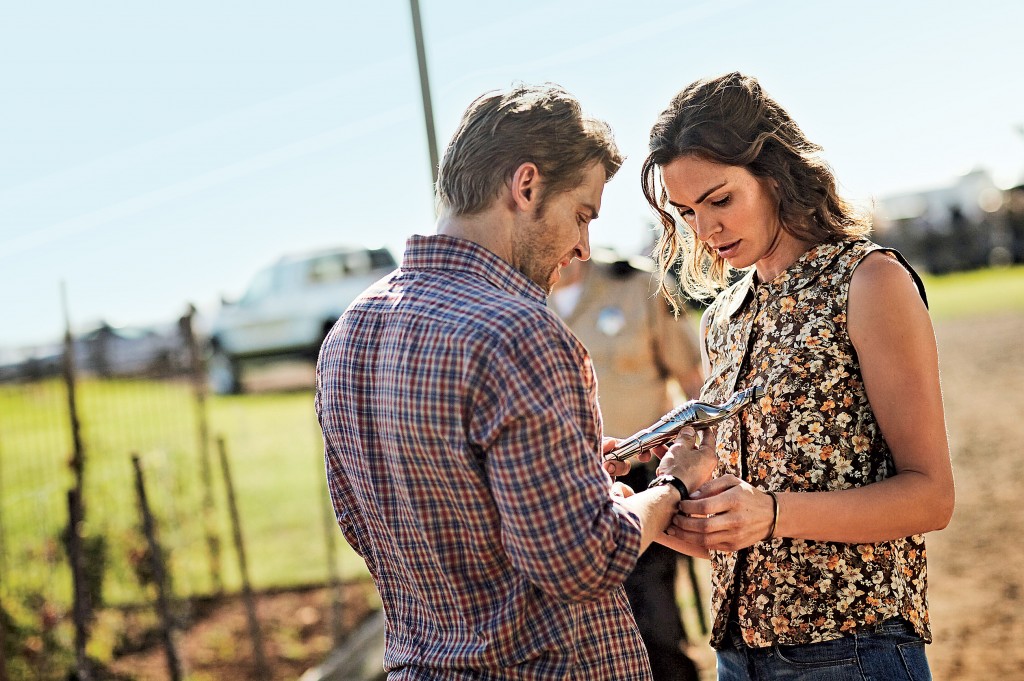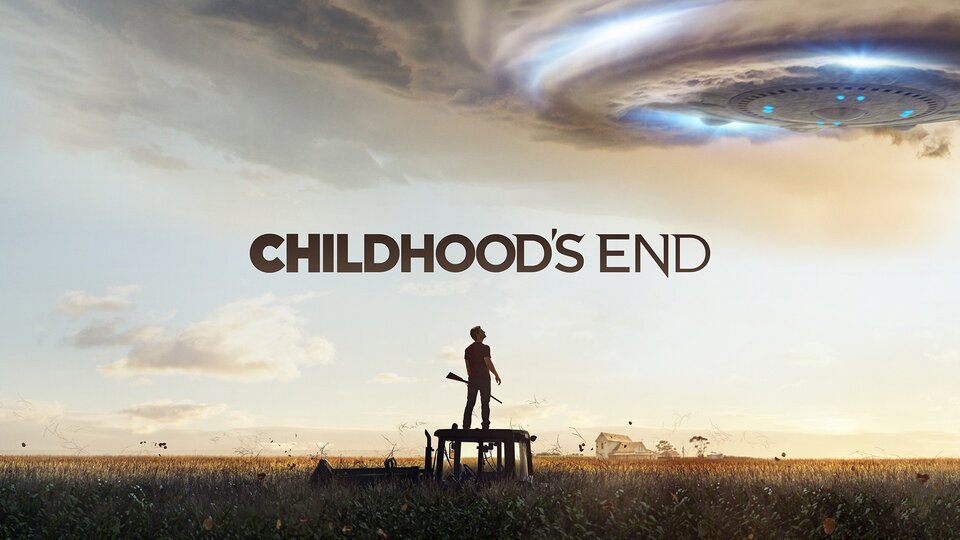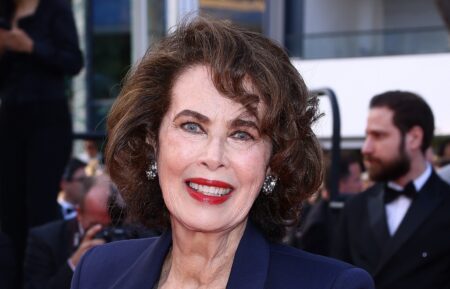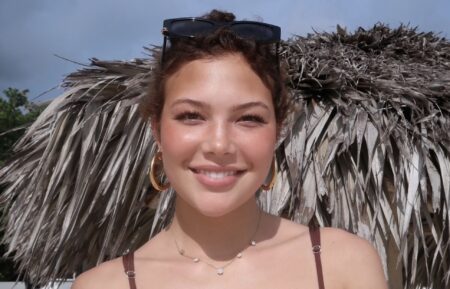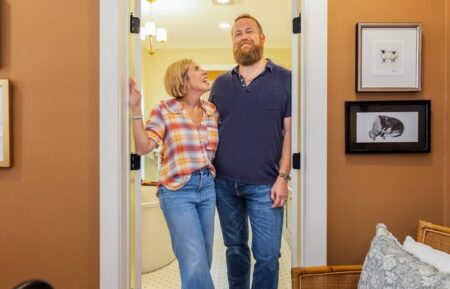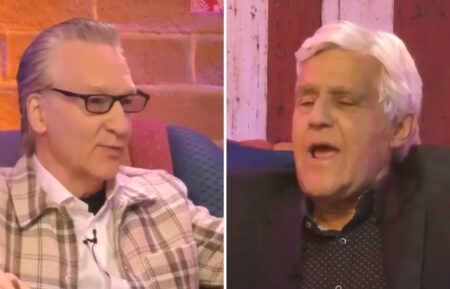Syfy’s ‘Childhood’s End’ Asks: Can We Live in Peace With Aliens?
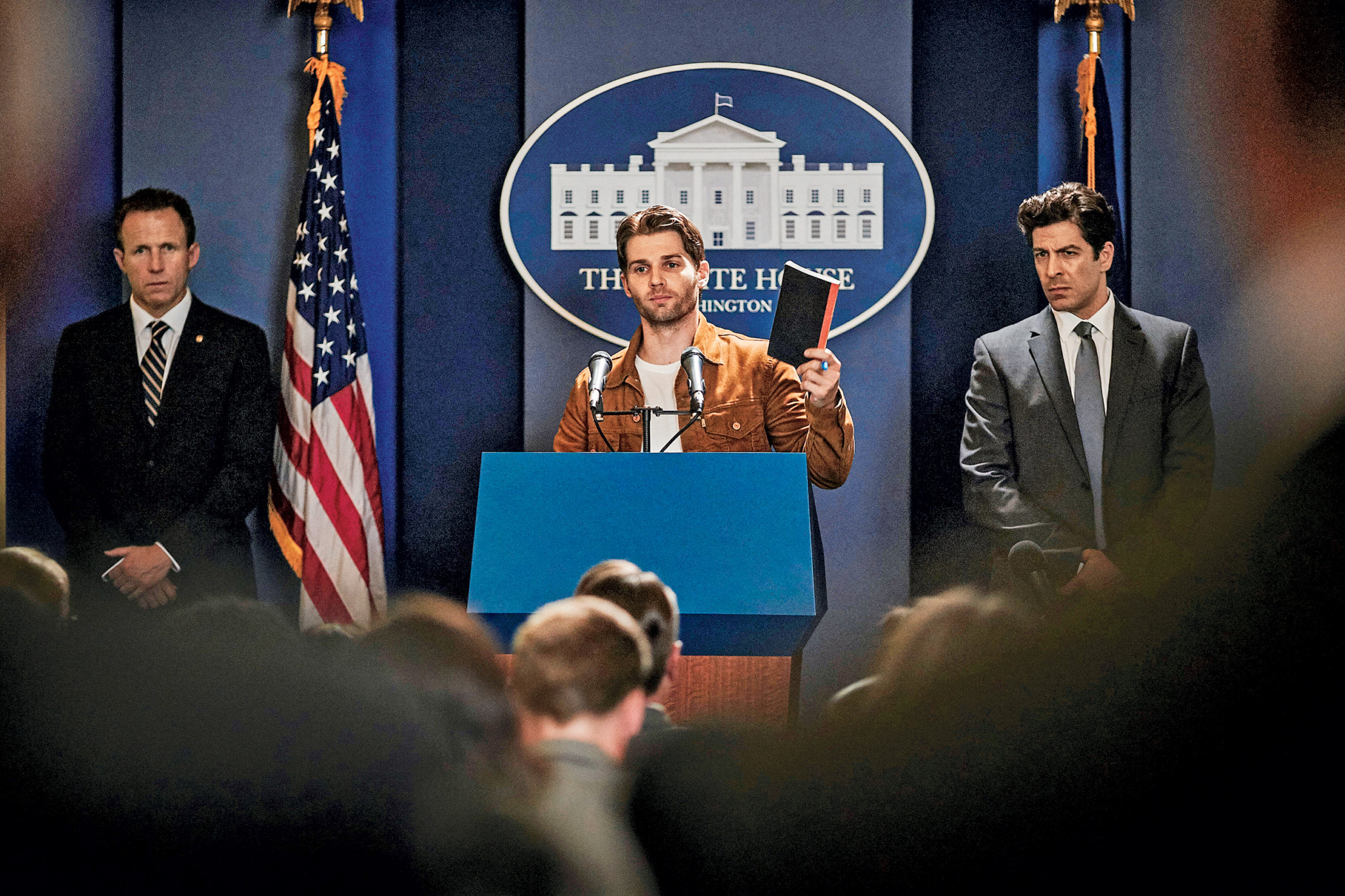
Long before the world of sci-fi and fantasy was taken over by Terminators and Avengers and Transformers, it was all about big ideas. And none were more mind-expanding than those found in Childhood’s End, the 1953 novel by Arthur C. Clarke, about a peaceful invasion of Earth by aliens from outer space. These seemingly benign beings unite the globe into one blissful nation, ending social injustice and eradicating disease and starvation. There is no longer any want or need. Fear is a thing of the past. In short, our planet has become Utopia. But at what price?
Though Clarke’s landmark work sold big and was highly acclaimed, it was widely considered unfilmable—even the late, great director Stanley Kubrick couldn’t make it happen—but it has finally been brought to the screen in a three-night Syfy event. And it would appear to be right on time.
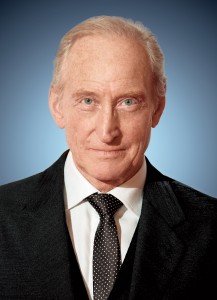
(Pictured: Charles Dance) “This is not Independence Day, executive producer Matthew Graham says. “It’s a story of ordinary people engaging meaningfully with aliens.”
“Childhood’s End is more relevant now than in the 1950s,” says Game of Thrones vet Charles Dance, who plays Karellen, the alien Overlord and self-proclaimed “Supervisor for Earth” who ushers in the new world order. “We human beings in 2015 are really f—ing things up with our wars, our politics and our pollution, and Clarke saw this happening over 60 years ago.”
The author also predicted we’d be incapable of solving this hot mess. “Earthlings try to sort things out, but inevitably we make a pig’s ear of it, don’t we?” says Dance. “You can see why we’d be open to some superbeing coming down here to fix all our problems, since we clearly cannot do it ourselves.”
As prescient as Clarke’s novel was, adjustments were necessary for the series. In the book, Karellen chooses Rikki Stormgren, the sixtyish head of the United Nations, as his human ambassador and uses him to relay his messages of benevolence to the people of Earth. In the Syfy version, Ricky (played by Mike Vogel of Under the Dome) is a thirtysomething farmer living in Missouri.
“We had to address the fact that we no longer look at our world leaders as being the best of us the way we did back in the ’50s,” executive producer Matthew Graham says. “Instead, we went Spielbergian with Ricky, making him a blue-collar everyman. The relationship between him and Karellen is now like that of the Old Testament God and his prophets, reminding us that God tended to pick the shepherd boy, not the prince.”
Speaking of God, if Karellen is the new supreme being, what becomes of religion? According to Vogel, this was a big topic of conversation down in Melbourne, Australia, where the miniseries was filmed. “Matthew and I hashed this out over many nights on the rooftop of our hotel—with probably way too many cocktails!” the actor says with a laugh. “As a man of faith, I believe the idea of an alien invasion—if it were to happen—would neither negate nor support one’s belief in God. But whether you are an atheist or a person of deep, deep faith, this will certainly spawn a wealth of discussion.”
So will Karellen’s appearance. During the alien takeover and for many years afterward, the Overlord does not reveal his true physical self in order to prevent world-wide panic. (You’ll understand why when we finally get a look at him at the end of Night 1!) Even Dance was unnerved when he saw himself under all the heavy Karellen prosthetics. “I fell asleep in the makeup chair and woke up four hours later, looked in the mirror and said, ‘My God!’” Dance recalls. “It was genuinely shocking—a brilliant piece of work by some very clever artists.”
Karellen even hides his presence when communicating with Ricky, though at one point the crafty farmer manages to take his photograph. He then shares it with his wife, Ellie (Chicago Fire’s Daisy Betts), but together they decide not to go public with it.
“They don’t want to rock the boat,” Betts says. “Either they know the world isn’t ready to see what Karellen really looks like or they don’t want to be the ones to break the disturbing news.” Ellie also has personal reasons for keeping mum. When Karellen picks her husband as his go-to guy—an opportunity that sends Ricky all the way to the White House—news crews and curiosity seekers bombard the Stormgren farm and camp out for years. “Altruism only goes so far,” says Betts. “Ellie is putting her own needs before the greater good. She’s like, ‘Why did Karellen have to pick my husband?’ She just wants her old life back.”
She won’t be alone in that. As the mini leaps forward several years, we meet Rupert Boyce (Julian McMahon, Nip/Tuck), a revered doctor in South Africa who has gathered a wide array of animal species and sent them off to Karellen’s mother ship—not knowing what the aliens truly have in mind for the planet. By the time Boyce realizes something’s pretty damn funky, it may be too late.
“This is the ultimate ‘Be careful what you wish for’ scenario,” Vogel says. “We might think we want Utopia, but what happens when there’s no longer anything to strive for, nothing that makes each of us unique? What happens to art, to creativity, to thinking? I suspect the viewers will be like Ricky. When they realize the true implications of Utopia, they’ll be thinking, ‘Thanks…but no thanks!’”
[jwplatform euytIxEh]
Childhood’s End, Miniseries premiere, Monday, Dec. 14, 8/7c, Syfy

